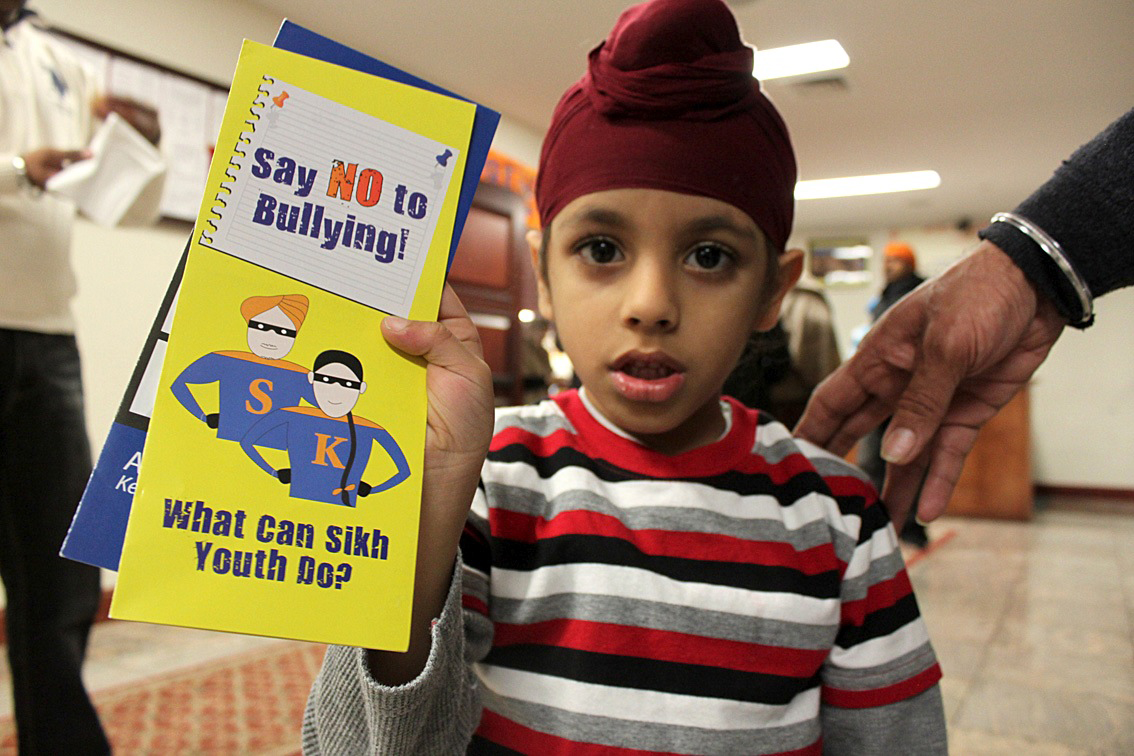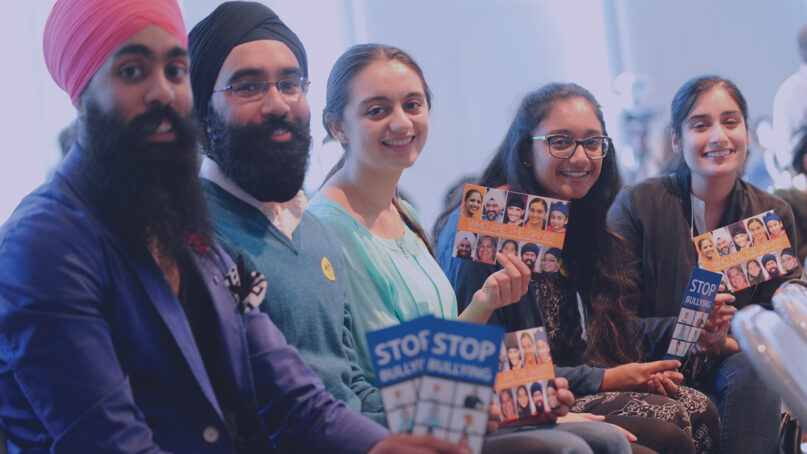(RNS) — The Sikh Coalition, a civil rights organization, has teamed up with researchers and academics to launch a nationwide online survey that asks Sikh American students about bullying, diversity and inclusivity and how much support they receive from teachers and other school staff when remarks are made about their race, ethnicity and religion.
The survey team is further partnering with gurdwaras and Khalsa schools as they seek to directly reach hundreds of students between the ages of 9 and 18 across the United States. The anonymous survey will be active until the end of March.
The effort is aimed at raising awareness for educators and students about bullying of the younger members of the faith who originated in Northern India in the 1400s and now comprise some half a million adherents living in the United States.
“There is a gap between the lived experiences of Sikh kids and what teachers, administrators and policymakers understand,” said Rucha Kaur, community development director for the Sikh Coalition.
Kaur said the survey “will ensure that their voices are heard,” as well as continue the organization’s efforts to “create a generational shift in Sikh awareness among the youth of the United States.”

Rucha Kaur, community development director of the Sikh Coalition. Courtesy photo
“We would like their experiences to inform policies that shape the lives of students that are coming after them,” Kaur added.
The survey consists of about 30 questions and asks students how often they’ve been bullied, by whom and if it has been related to their Sikh identity. Students can detail the kind of bullying they’ve experienced, whether they’ve been physically hurt or subjected to online hate.
It asks students if they’ve reported the bullying to school staff and if their teachers or coaches correct or penalize comments made about their religion, race or ethnicity. Students in the survey can specify whether they’ve been targeted due to their appearance and articles of faith, including unshorn hair, their turban or other head covering or a metal bracelet known as the kara.
The researchers also want to know whether students are learning about Sikhism in school and whether school and sports uniform policies allow them to wear their head covering. Students in the survey can also note whether they’ve felt helpless, anxious or left out of activities in school settings.

A child shows a Sikh anti-bullying brochure. Photo courtesy Sikh Coalition
Kaur said the survey is an update to their 2014 “Go Home, Terrorist” school bullying report, which found that more than two-thirds of turbaned Sikh children reported they were bullied in school.
Kavita Kaur Atwal, the leading academic researcher behind the survey, said the effort “is unique, in that we are really looking beyond the fact that we know they experience higher rates of bullying.”
“We are trying to look into concepts related to school climate. We’re looking into really understanding their experiences within schools,” Atwal said. “Are they allowed to wear their articles of faith at school? When they experience a bullying incident, can they report it and is it recorded that a Sikh student was being bullied?”
Atwal said the ultimate goal is to help improve the experiences of Sikh students in the U.S.
“We want to bring awareness to factors that may impact their education and their life experiences,” she said. “We’re hoping to potentially make recommendations to help educators and mental health practitioners … know how to work with and support Sikh students,” she said.





